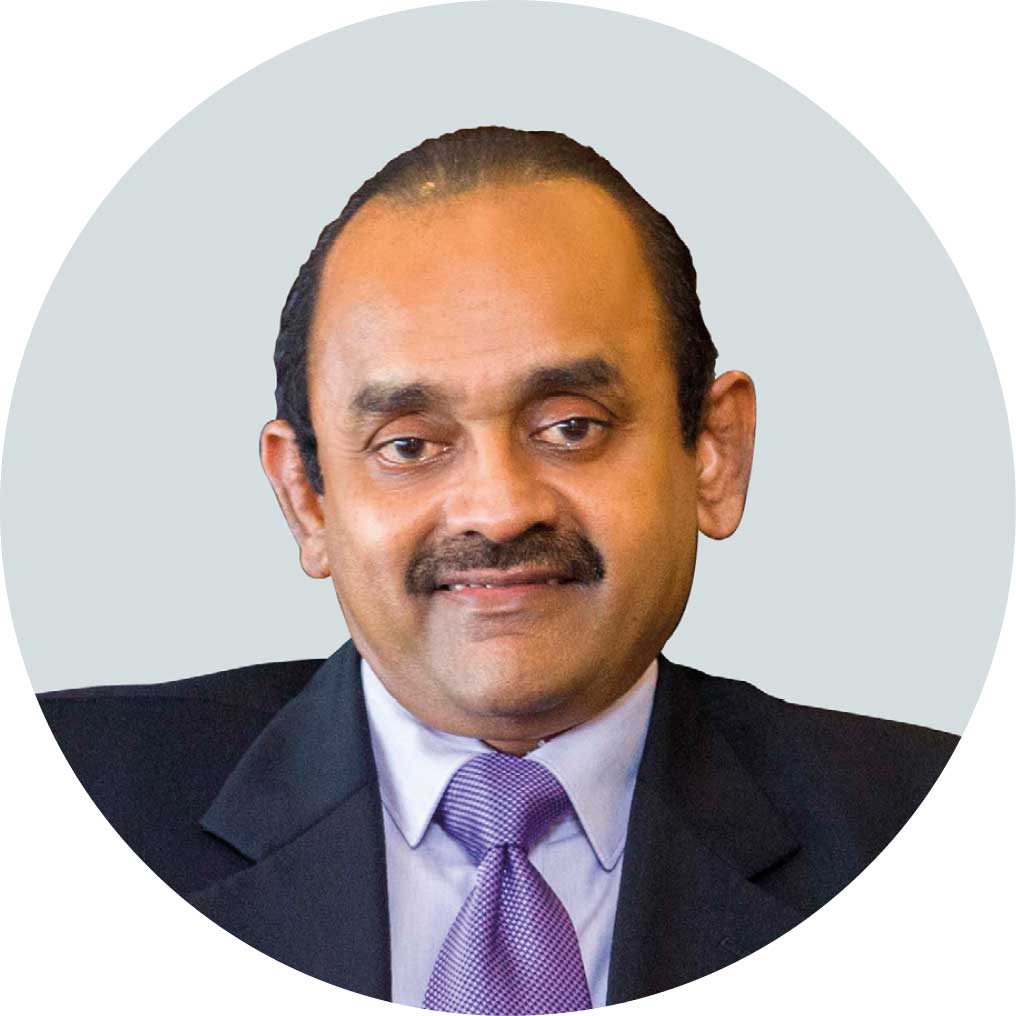A HOMEGROWN PERSPECTIVE
Instilling a local ethos in the economy
Sujeewa Rajapakse
People’s Bank
Q: What role does the bank play in the context of Sri Lanka’s economy?
 People’s Bank began its journey by focussing on the cooperative sector in 1961, expanding its operations to cater to SMEs over time.
People’s Bank began its journey by focussing on the cooperative sector in 1961, expanding its operations to cater to SMEs over time.
However, this does not mean that People’s Bank caters to a niche market; on the contrary, many large-scale conglomerates partner with the bank. Having said that, SMEs are prioritised since we believe they are the backbone of the economy.
Of Sri Lanka’s population of nearly 22 million, 14 million are thought to partner with People’s Bank. Ranging from the youth to the elderly, our customer base is quite diverse. Our branch network of 750 is operated by more than 8,000 skilled employees who are on alert to cater to customers’ banking needs.
As a state owned enterprise (SOE), People’s Bank has contributed around Rs. 13 billion to the economy by way of taxes and levies. The motive transcends profitability – the goal is to ensure comfort, thereby upgrading living standards.
Ensuring a balance in market liquidity is crucial particularly in a pandemic ridden era. For example, the apparel industry could not collect around US$ 500 million due to export restrictions.
Given these challenges, the government implemented crucial economic measures including moratoriums and working capital loans to strengthen the economy. With these incentives along with other fiscal measures, the bank has maintained its interest rates in the single digits.
We introduced four notable loan portfolios: the Aswenna scheme covers the agriculture, fisheries, livestock and dairy sector; Vanitha Vasana is geared to empower female entrepreneurs; the Made in Sri Lanka scheme offers assistance to local industries; and the Business Power scheme enables SMEs to obtain loans of up to 50 million rupees.
Curtailing consumption while boosting investment is the way forward. We are taking it upon ourselves to spread this message among the public through educational programmes, public forums and the media.
Additionally, we provide crucial facilities to other vital SOEs that offer services at subsidised rates, which enhances their sustainability.
Q: How do you look to drive efficiency among the bank’s staff?
Most organisations are driven by targets – both quantitative and qualitative. SOEs have similar targets driving their efficiency and mainly look to provide services to uplift people’s living standards.
People’s Bank staff remains energised due to the results achieved amid many challenges. Our financial results for last year reveal that the bank performed better than in 2019, which serves as testimony to the effective use of human resources.
Q: Does innovation play a significant role in the bank?
 People’s Bank is a pioneer in adopting digitalisation with one of the best digital platforms in the country. The massive volumes of transactions conducted on the bank’s digital platform generate considerable ROIs.
People’s Bank is a pioneer in adopting digitalisation with one of the best digital platforms in the country. The massive volumes of transactions conducted on the bank’s digital platform generate considerable ROIs.
Moreover, this platform has earned us many accolades from reputed independent global and local organisations.
People’s Bank strives to establish a personal touch with customers. We aspire to play a role beyond that of a mere banker – as a consultant, friend, partner and counsellor. Furthermore, we established a business revival unit that assists customers who are in distress and need guidance.
Q: How can Sri Lanka increase its exports going forward – and diminish its reliance on imports, loans and other trappings?
The ideal solution would be to identify a means to promote homegrown products. To this end, import substitution is a must for which People’s Bank provides loan facilities.
As part of our efforts to improve the country’s balance of payments, self-discipline is needed and our buying patterns must change.
Promoting innovation, strengthening geopolitics, diversifying income sources, changing consumption patterns, and increasing investments in the medium and long terms will help the country achieve an economic growth of six percent under normal circumstances.



